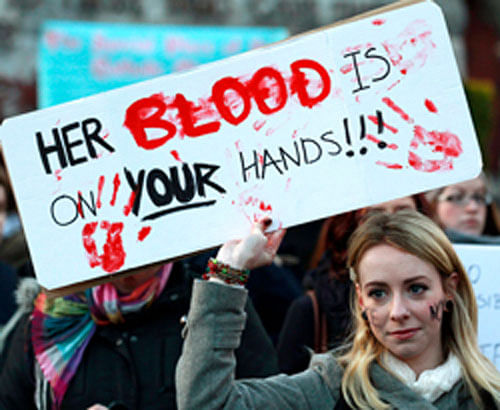
Ireland's first life-saving pregnancy termination has been carried out under a new law following last year's tragic death of an Indian woman who died after being refused an abortion at an Irish hospital.
The country's first legal termination was carried out on a woman who had an unviable 18-week pregnancy and whose life was at risk.
The case bears a number of similarities to that of 31-year-old Indian dentist Savita Halappanavar, in that the woman's membranes had ruptured and she was demonstrating signs of sepsis.
But unlike Halappanavar, who died of sepsis at University Hospital in Galway in October 2012 after she was refused an emergency termination due to Ireland's then strict anti-abortion laws, the patient at National Maternity Hospital has made a good recovery after receiving antibiotic treatment and undergoing the termination a number of weeks ago.
It has been recorded as the first legal abortion to be carried out since the Protection of Life During Pregnancy Act was passed by both houses of the Irish parliament last month.
The termination was performed under Section 7 of the act, which deals with the risk of loss of life of a woman from physical illness.
Under the new legislation, the hospital is required to provide the health minister with the registration number assigned by Ireland's Medical Council to the doctors who carried out the procedure and were involved in certification.
It must also state under which provision of the act the termination was carried out.
The health minister is required to publish an annual report on terminations carried out under the terms of the act.
The act does not provide for the identification of either patients or the doctors involved in the process.